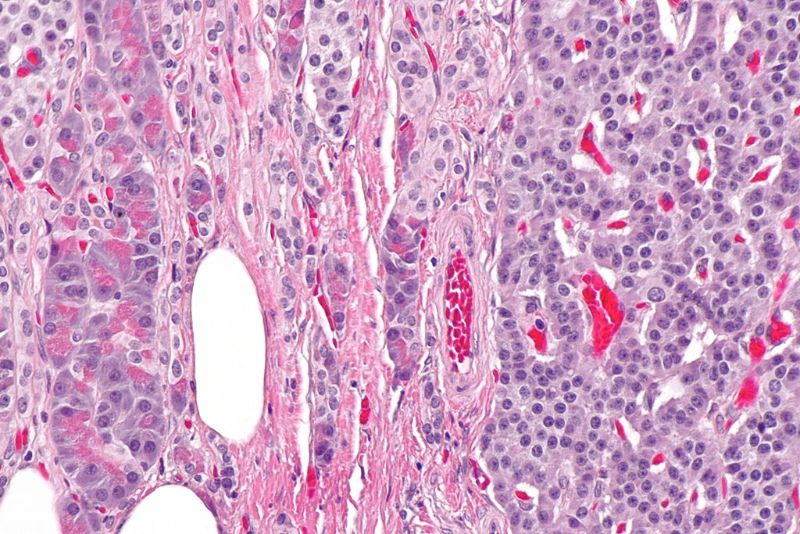
The independent data monitoring committee (IDMC) of surufatinib’s Phase III SANET-p clinical trial has recommended Hutchison China MediTech (Chi-Med) to stop the study early after obtaining positive data from pancreatic cancer patients.
SANET-p enrolled patients with advanced pancreatic neuroendocrine tumours in China.

Discover B2B Marketing That Performs
Combine business intelligence and editorial excellence to reach engaged professionals across 36 leading media platforms.
During interim analysis, the IDMC found that the trial had met the pre-defined primary endpoint of progression-free survival (PFS).
Surufatinib is an oral inhibitor of angio-immuno kinase. It blocks the tyrosine kinase activity of vascular endothelial growth factor receptor (VEGFR) and fibroblast growth factor receptor (FGFR) that inhibit angiogenesis.
The drug also inhibits the colony-stimulating factor-1 receptor (CSF-1R) that regulates tumour-associated macrophages. This dual mechanism is said to promote immune response against tumours.
SANET-p compared a 300mg daily dose of the drug to placebo on a 28-day treatment cycle.

US Tariffs are shifting - will you react or anticipate?
Don’t let policy changes catch you off guard. Stay proactive with real-time data and expert analysis.
By GlobalDataApart from the primary endpoint, the trial monitored objective response rate, duration of response, time to response, disease control rate, safety, overall survival and tolerability.
Chi-Med CEO Christian Hogg said: “Following surufatinib’s NDA submission for the treatment of non-pancreatic neuroendocrine tumours, these positive results for pancreatic neuroendocrine tumours reinforce that surufatinib has the unique opportunity to address all advanced neuroendocrine tumours.
“We believe that no targeted therapies are approved in China or globally for such a broad spectrum of neuroendocrine tumour disease.”
The company is planning a pre-new drug application meeting with the China National Medical Products Administration (NMPA) to discuss the application for surufatinib in this pancreatic cancer indication.
In December last year, NMPA granted priority review to the drug for advanced non-pancreatic neuroendocrine tumours.
The US Food and Drug Administration (FDA) also awarded orphan drug status to surufatinib for pancreatic neuroendocrine tumours in November last year.





